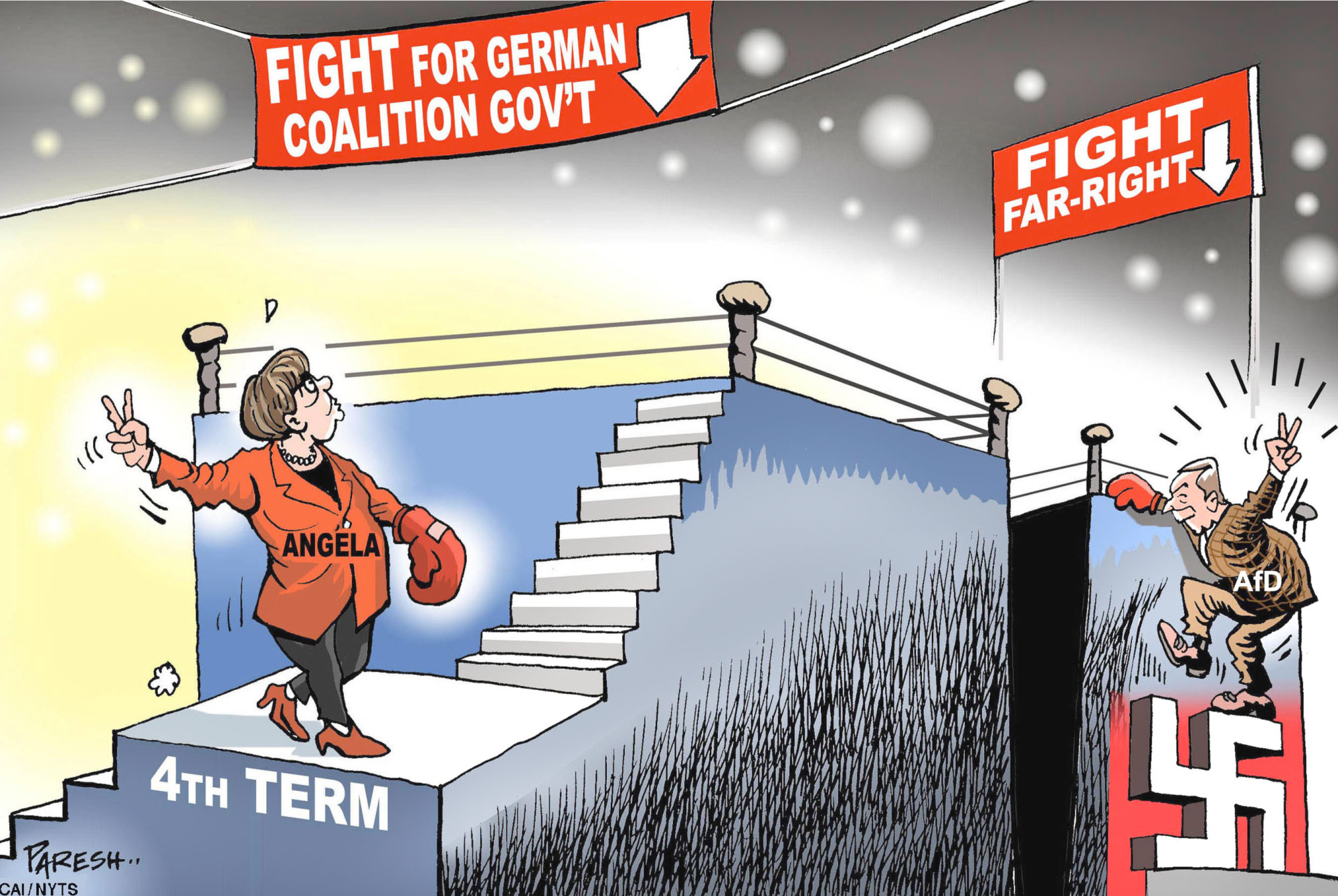The outcome of Germany's election holds a crucial lesson for the European Union: even the country that has been the EU's bedrock of stability amid crisis is not immune to political fragmentation and polarization. Although Chancellor Angela Merkel will almost certainly gain a fourth term, her new government is likely to be considerably weaker than the three that preceded it.
The Bundestag now counts six factions, compared with four in the previous electoral term. Merkel's center-right Christian Democratic Union took 33 percent of the vote, its worst result since 1949, though still enough to give the CDU the most seats in parliament. The center-left Social Democrats (SPD) — Germany's second-largest political party, and a part of Merkel's last governing coalition — also hit a postwar low, receiving just 20.5 percent of the vote.
Meanwhile, the populist Alternative for Germany (AfD) won 12.6 percent, making this anti-euro, pro-Russia and staunchly xenophobic party the first far-right party to enter the Bundestag in almost 60 years. And the SPD has thrown in the towel, vowing to spend the coming electoral term in opposition.



















With your current subscription plan you can comment on stories. However, before writing your first comment, please create a display name in the Profile section of your subscriber account page.